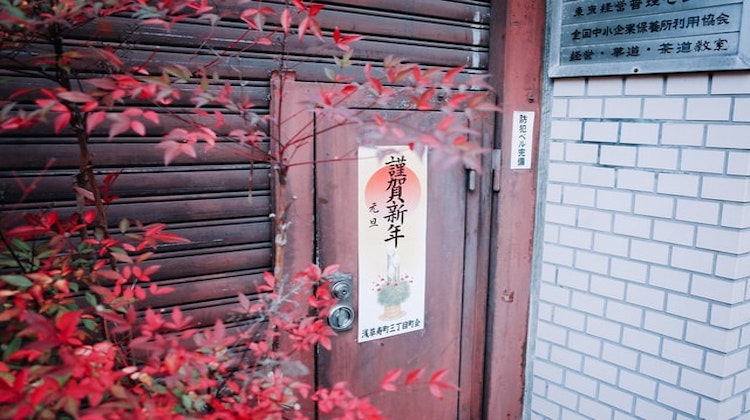Christmas in Japan
Let’s talk about Christmas first. Obviously, people who follow Christian traditions and/or are part of Church communities will have slightly different senses and experiences even in Japan. But in general, Christmas is just a ‘fun’ event as it has no traditional or religious meaning to most Japanese. Eating KFC fried chicken is now a well-known and probably the most strange Japanese Christmas ‘tradition’. Another must-do thing is eating クリスマスケーキ (kurisumasu ke-ki, Christmas cake), which is a fluffy sponge cake layered with whipped cream and fresh strawberries. You will see pretty Christmas displays and lights everywhere and it is indeed a ‘fun’ time. But this sometimes makes people miss home (where Christmas is traditionally celebrated) even more as Christmas should really be about families and traditions.
Teachers run in December
In Japanese, the counter for a month is ‘gatsu’ (written 月 which also means moon) and January will be ‘ichi gatsu’ (ichi = one), February ‘ni gatsu’ (ni = two) and so on. But in Japan’s old calendar, December was called ‘shiwasu’ written 師走. The first character 師 means teachers, the second character 走 means running. There are a few stories around the origins of this word, one of which is that December is such a busy month even teachers who are usually calm start running around!
Year-end gifts (Oseibo)
Oseibo is a year-end gift given as a token of appreciation. I suppose it is a little bit similar to Christmas cards, but much more formal with all sorts of social rules and do’s and don’ts attached to it. Oseibo gifts often happen between different households, and some people give Oseibo to their bosses at work. It is said to be a correct manner to send an Osibo gift by December the 25th.
Memorial service for old needles (Hari kuyo)
Hari kuyo is a ceremony dedicated to old or broken needles. ‘Hari’ means needles and ‘Kuyo’ means memorial service (for the dead). People think needles should take a rest on soft materials before being thrown away. As a way of saying thank you for their hard work, people gather and pin their old needles into soft things such as tofu and konjac jelly. Hari kuyo ceremonies take place in shrines and temples all across Japan. They are held on December the 8th in the West of Japan and on February the 8th in the East. In recent years people bring not only needles but other small objects also to Hari kuyo.
It’s New Year’s Eve, Let’s clean the whole house!
Ahh-, New Year’s Eve. In many countries people will be preparing home parties, having a nice lunch get-together with friends or getting hair done before night’s out. Things are a little bit different in Japan. The 31st of December is a day of ‘O-so-ji’, written 大掃除, 大= big, 掃除= cleaning. Literally is a day of big (or deep) cleaning. The scale of ‘bigness’ varies depending on each person, household, or company (yes, many companies do O-so-ji), but the idea of O-so-ji is to get rid of the baggage from the passing year and prepare to welcome the new year with a clean, tidy, fresh and purified space. Many children participate in O-so-ji cleaning.
Tasty self-care
Now the house is clean, you can wind down with Toshikoshi soba. Literally means ‘year crossing buckwheat noodle’. Traditionally, the Toshi Koshi soba is eaten just before midnight (after eating dinner) on New Year’s eve, but nowadays many people have it for dinner. It is said that as the soba noodle is easily cut, it signifies letting go of the regrets of the past year. Freeing oneself from regrets about the past or negative thoughts whilst eating tasty soba noodles? I’m in!
There you have it. Christmas in Japan may be overly commercialized and completely lacking in a sense of tradition. At the same time, December is a really busy, spiritual, and meaningful time in Japan full of traditional rituals and events with a very strong focus on letting go of the past and welcoming the new year with a fresh and hopeful mind.
What are December traditions in your countries? Do you have something similar? Will you be trying out any Japanese year-end traditions this year?
Whatever you will be doing, stay safe, stay positive and do what makes YOU happy. You don’t have to be having a party or trying to be ‘cheerful’ - just be kind to yourself (and others!)
Wishing you a bright happy new year.







